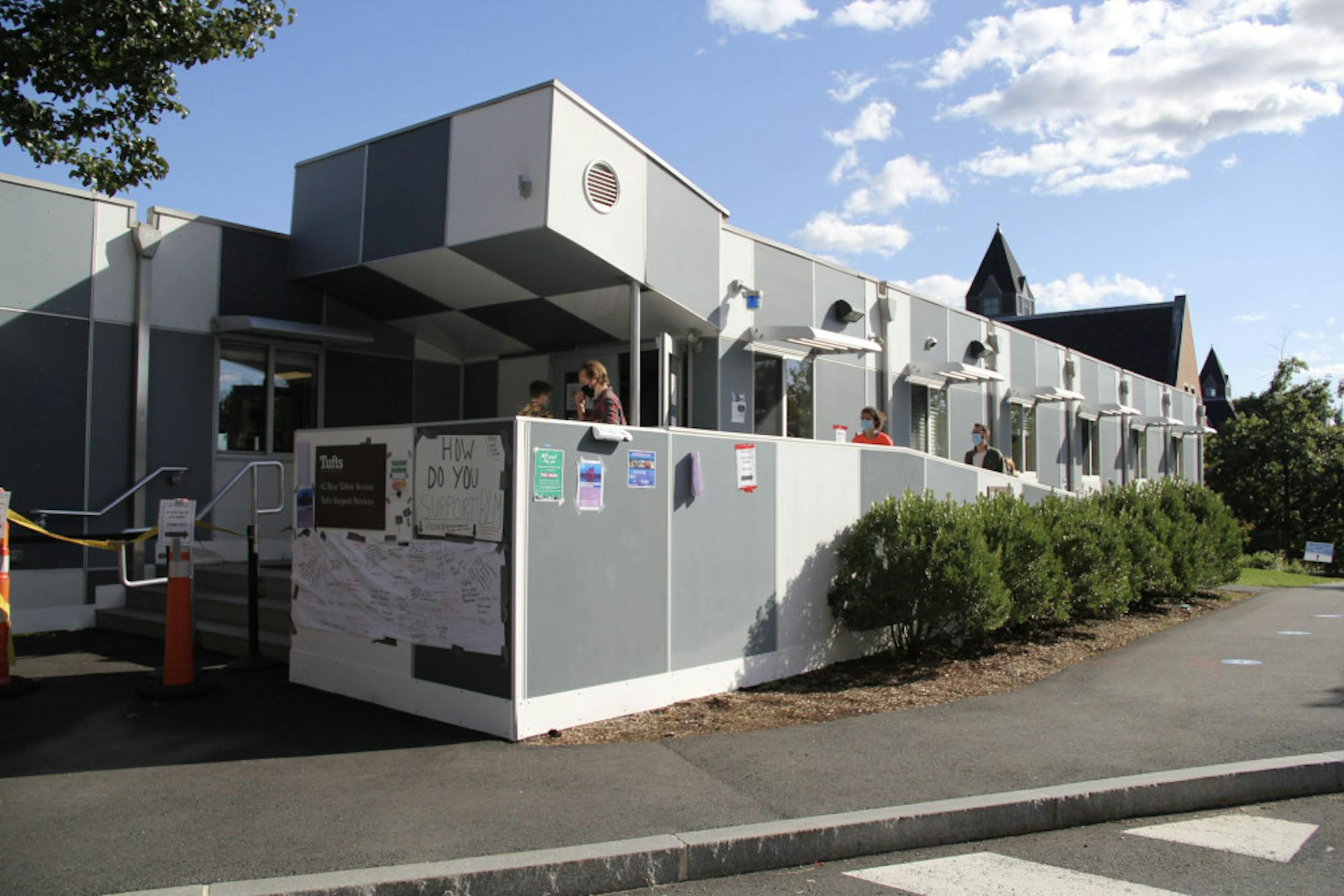Tufts recently launched a pilot COVID-19 study intended to assist K-12 schools to reopen safely through a method known as “pooled” testing. The effort will determine whether the nasal swab samples, widely used for COVID-19 surveillance testing, can be studied in batches.
Vice Provost for Research Caroline Genco explained that once the study is proven reliable, Tufts intends to oversee and work with emergency medical technicians (EMTs) or medical assistants on the pooled testing process.
In practice, volunteers for the study are handed an extra swab and tube during their regularly scheduled surveillance testing. While the first sample is analyzed individually, the second sample is tested through the pooled method and put in another tube that includes swabs from seven other volunteers.
According to Genco, the study had collected 2,033 samples as of Oct. 8.
Tufts’ current testing infrastructure can shed light on the effectiveness of the pooled testing method.
Genco explained that if a pooled sample tests positive, the eight individuals will be contacted and asked to isolate while the individual surveillance tests are completed. Positive results on individual tests that are also found in the corresponding pooled tests can validate the method.
The pooled method is projected to have a positive health impact on the larger community by testing all close contacts of positive individuals, including family members.
Genco added that the method is not only more cost-effective than individual testing, but more efficient.
“Compared to the cost of 12,000 individual tests twice weekly for 12 weeks (7.2 million), the pooled method, including retests, will be less than half the cost (3.5 million)," Genco wrote in an email to the Daily. “We will be able to process these tests at a higher volume than individual tests.”
The reduction in costs associated with pooled testing offers a more affordable and accessible option for K-12 schools.
Andrea Jasmin, a second grade teacher at Maria L. Baldwin School in Cambridge, said that districts that are not able to afford their own surveillance testing are at a disadvantage.
“The reality is if you don't test, people are going to get infected. For any district, for anyone, the more testing, the better. In that way, you know people are safe [and] if you have someone infected, you're able to say, 'Well, this is why we're doing testing and this is how we can keep people safe,'” Jasmin said.
Jasmin also explained that Cambridge Public Schools' (CPS) strong testing infrastructure has been made possible because of its budget.
In fiscal year 2019, CPS’general fund budget was $191,069,500, while Medford Public Schools’ (MPS) budget was only $60,629,011.
“We have a good amount of money in Cambridge, whereas other districts are not in the same boat,” she said.
Nick Yeh (LA' 18), a current substitute at Maria L. Baldwin School, explained that providing a cheaper testing method gives schools the opportunity to confront other challenges induced by the pandemic.
In the wake of COVID-19, Massachusetts school districts grappled with challenges related to budget cuts. In June, hundreds of educators across the state’s50 school districts received layoff or non-renewal notices.
“By creating a very strong and consistent testing protocol, not only can you help create an environment where you know how students and teachers are faring with the disease, but if it's cheaper, that means those resources can be allocated differently,” Yeh said.
BothCPS andMPS have moved forward with their respective reopening plans and invited students back in person. However, questions about the quality of testing infrastructure remain.
“If a school district doesn't have the proper testing infrastructure, then it's almost like a ticking time bomb. When are we going to get the infection? And if [someone] does, when will we know? When will it be too late?” Yeh said.
Yeh underlined the importance of having a robust testing infrastructure in place, one that is widely available, accessible and affordable.
“If testing is not paid for by the consumer, if it's provided by the employer … or if it's provided by the city or the state, in such a way that's accessible, then people don't actually even have to worry about finding a place to get tested, taking time out of their work time to get tested,” he said.
Like Yeh, Genco noted that the benefit of implementing pooled testing in schools is that it does not require transportation to a testing site.
Yeh, who is also an audio visual technician at Tufts and participates in the university's semiweekly surveillance testing, described the procedure as being high reward and low risk.
Genco praised the Tufts community for its ongoing support.
"It was wonderful to see the Tufts community get behind this work so strongly," she said.






